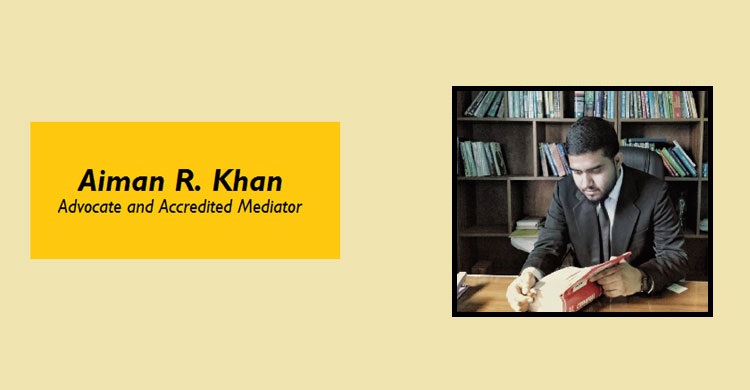Confession of Minni and the law

Aiman R. Khan:
Minni, wife of slain Rifat Sharif of the much talked about Rifat Sharif case was arrested few days ago. The police found her links in relation to the murder. They sought for a 5 day remand but Minni gave her confession of her involvement the very first day of the remand. Therefore she was brought to the court to give her confessional statement in front of the Magistrate. Her confession given to the Police was not taken. The laws says if you are accused of a crime and the police asks for your confession, whatever you say cannot be held against you in the court. To know why and how, read on …
The substantive provisions regarding Confession is contained in s.24-30 of the Evidence Act 1872 while the procedural ones can be found in s. 163, s. 164, s.364 and s. 533 of the Code of Criminal Procedure 1898
- 164 of the Crpc provides that only Metropolitan Magistrate/ 1st Class Magistrate and 2nd Class Magistrate can record confession of an accused. s. 164 is not limited to only confessions but statements and witnesses not only the accused. Hence, any person be it an accused or a witness may wish to give confession or statement and the Magistrate cannot force them to do so against their will.
Conditions of recording confession under s. 164 of Crpc:
Confession must be made before the trial, at the investigation stage
Confession must be made in the presence of a Magistrate
The Magistrate before recording such confession or statement must explain to the person that he is not bound to give it and any such statement may be held against him
After recording it, the Magistrate as well as the statement maker must sign the document under the prescribed rules of s. 364 of Crpc
After signing, the Magistrate shall make a memorandum of the record
Prescribed rules of recording confession under s. 364 of Crpc:
All the statements, questions, answers regarding the confession must be recorded in the language used to examine the person
If such is not possible then it shall be recorded in the language of the Court or the English then shown and read out to him
If the person does not understand such language then it shall be interpreted to him where he can explain or add arguments
After the recording is done, both the accused and the Magistrate shall sign the document with a certified statement from the Magistrate that the statements were made in his presence.
Evidential Value of the Confession recorded under s.164:
The Appellate Division of the Supreme Court of Bangladesh in the case of State v Shafiq held that confession recorded under s.164 cannot be the sole basis of conviction if not supported by corroborative evidence. However in the case of Ali Asghar v The State and Abdur Rashid v The State (1983) the High Court Division held that if the confession was made voluntarily and without any doubt, it may form the basis of the conviction of the accused.
Admissibility of Confession made to the police (Without presence of Magistrate):
s.162 of the Crpc states that no confession made to the police can be used in the inquiry or trial. It is not admissible as a substantive evidence against the accused. However it can be only used by the prosecution or the accused for the purpose of contradicting the witness. Besides Crpc, the admissibility of statements made to the police has been mentioned in the Evidence Act as well:
- 25 provides No Confession made in police custody can be proved against the accused
- 26 provides Confession made to the police may only be admissible if a Magistrate is present
- 27 provides that Confession made to the police may be admissible depending on how much information has been provided that leads to evidence. (Basir Ali v State)
In the case of Siddikur Rahman v The State and Mohammad Box v The State, the court held that no confession made to the police can be admissible in the court.
Object of s. 162:
To protect the accused from untruthful witness
To protect the accused from the unreliability of the police since they tend to adopt third degree measures to retrieve information
To prevent dependency on police records written by individuals not experts in the law of evidence
To promote the free disclosure of information
The writer is an advocate at Dhaka judge court

